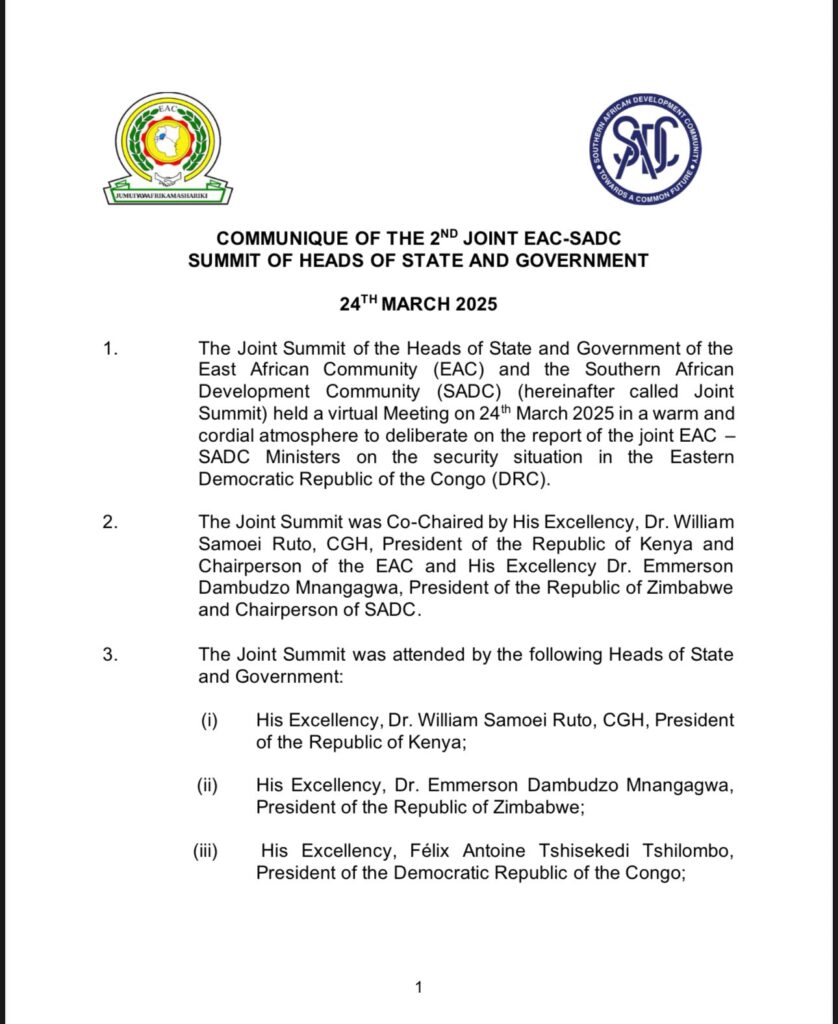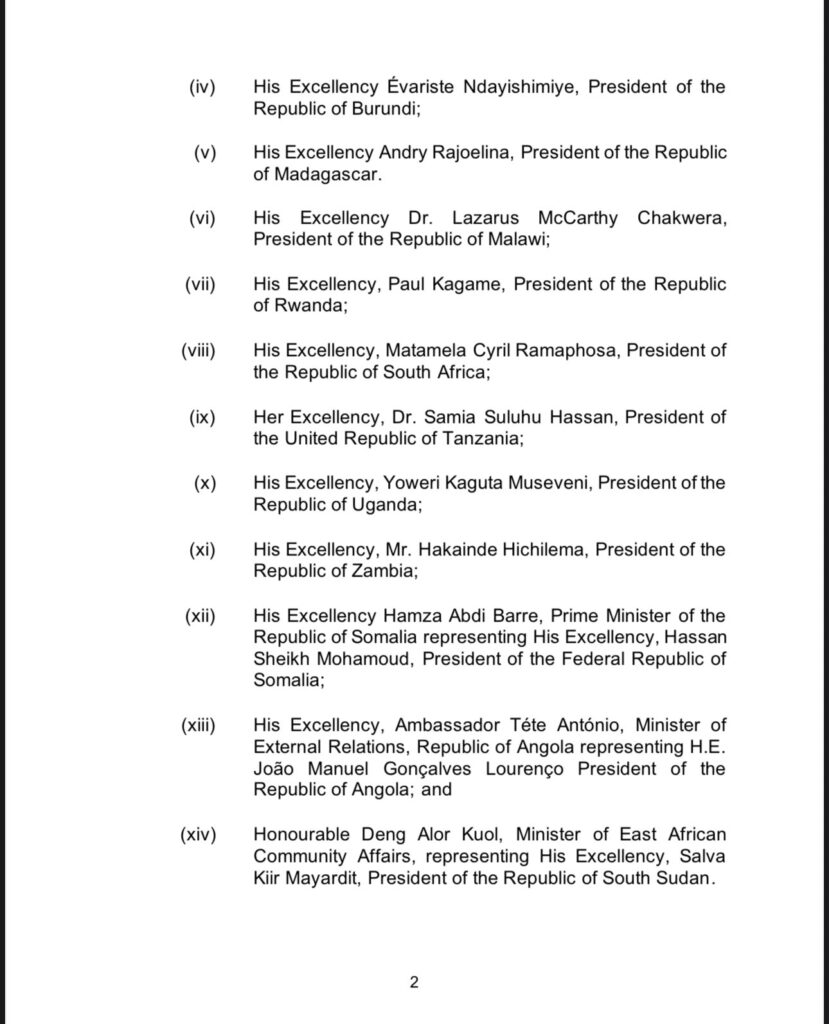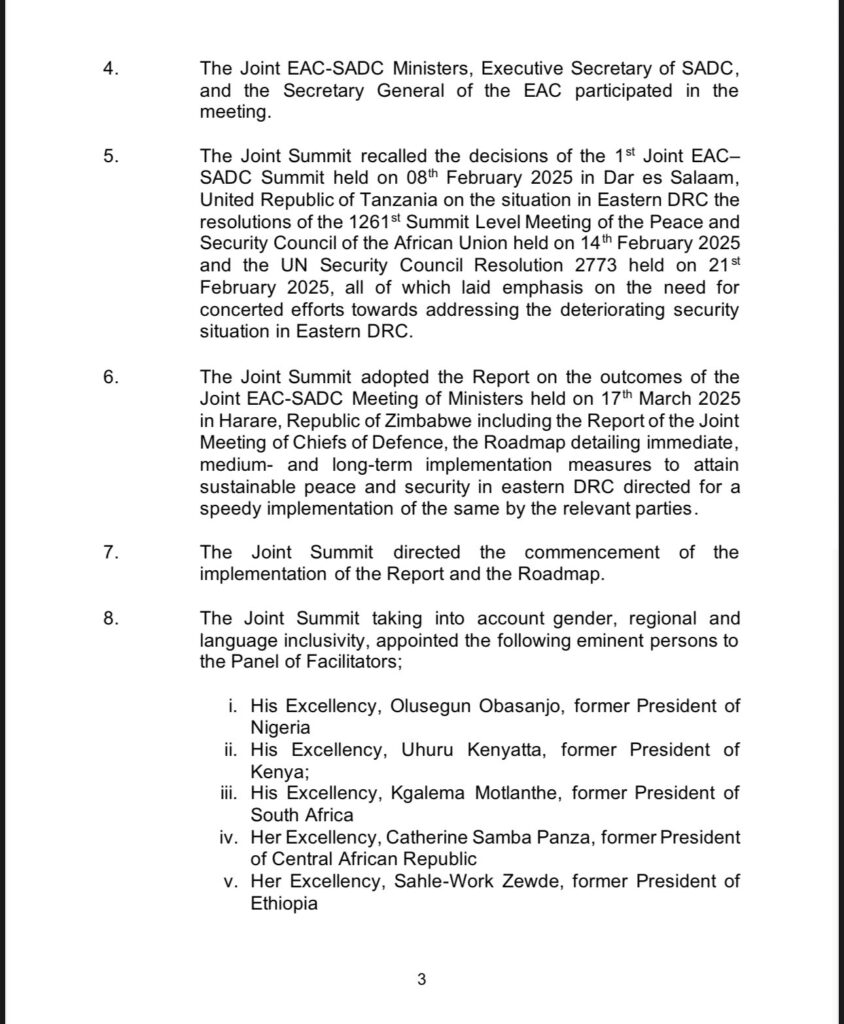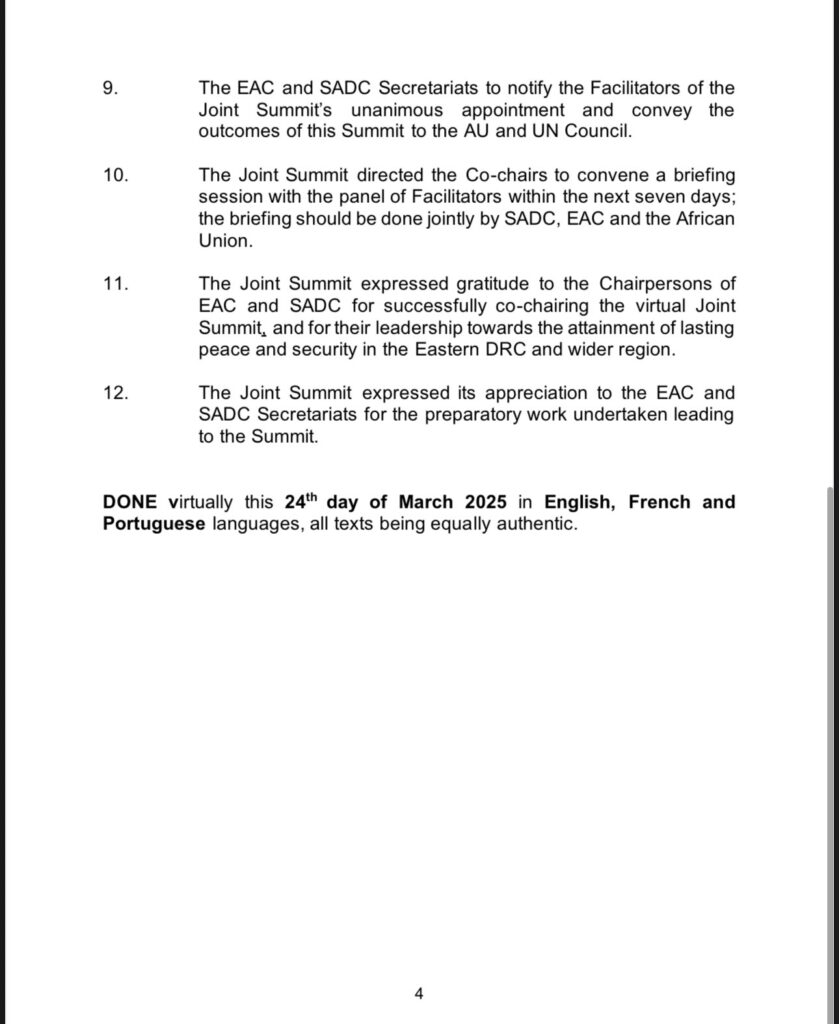African regional blocs take the lead—but will their voices cut through the chaos?
In a rare display of unity, the East African Community (EAC) and the Southern African Development Community (SADC) have jointly expanded their team of mediators to address the worsening conflict in the Democratic Republic of Congo (DRC). This new move, confirmed in an official communiqué issued after a recent joint summit, signals a shift toward African-led resolution in one of the continent’s most protracted wars.
The newly formed mediation panel includes five former African heads of state: Kenya’s Uhuru Kenyatta, Nigeria’s Olusegun Obasanjo, South Africa’s Kgalema Motlanthe, Ethiopia’s Sahle-Work Zewde, and the Central African Republic’s Catherine Samba-Panza. This group reflects a deliberate effort to ensure regional balance, gender inclusion, and multilingual representation—an acknowledgment that any durable solution must be as complex and inclusive as the conflict itself.
The eastern DRC has become a flashpoint for regional instability, resource wars, and armed proxy conflicts—many driven not just by internal fractures but by the deep interference of foreign powers and corporations eyeing Congo’s mineral wealth. For decades, peace has remained elusive, with international interventions failing to bring long-term stability.
Now, Africa’s own leaders are stepping in—again. But will this latest panel succeed where so many have failed? Will they confront not only the militias and warlords, but the shadow networks of political, business, and international actors profiting from the chaos?
The DRC’s future hangs in the balance. And this time, the rest of the continent has no choice but to pay attention. Because peace in Congo is not just a Congolese issue—it’s an African imperative.








